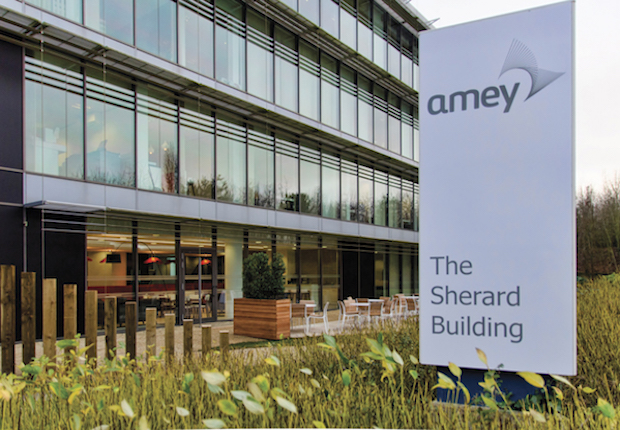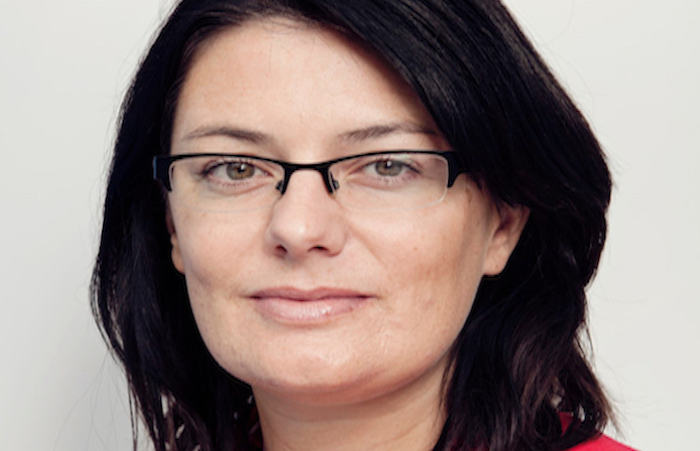
Public services provider Amey connects its employee benefits strategy with its culture and values in order to motivate and engage staff, as well as educate them about the organisation.
Staff appreciation
Its employee recognition scheme, provided by Red Letter Days for Business, helps drive awareness of the organisation’s values and objectives: achieving growth, keeping people safe, providing value to customers, supporting communities, protecting and enhancing the environment and investing in people and skills. The Special Thanks and Recognition Scheme (Stars) has helped to boost motivation, as demonstrated through the increase in the number of reward cards sent month-on-month since the scheme was first introduced in April 2014.
Amey launched the scheme as part of its streamlining efforts following its acquisition of support services firm Enterprise in April 2013, through which it gained 9,000 employees. The scheme has two pillars: thank-you cards and reward cards.
Thank-you cards can be sent online via a portal or handed out in person. The cards have no monetary value, but are used for peer-to-peer, or downward and upwards recognition.
The reward cards are worth £25 in high street and experience vouchers. These can only be given by managers to permanent employees who are not eligible for bonuses.
Amey’s four core values, progressive, accountable, collaborative and effective (Pace) are listed on the front of each card. The person sending the card ticks the relevant value(s), and when the recipient redeems them they verify which value(s) they were recognised for.
Amey also launched a star of the month campaign in January 2016, the winner of which is awarded £100-worth of vouchers.
As part of its benefits streamlining efforts, Amey also moved the 9,000 staff originally from Enterprise to its standard pay review, meaning each employee received a pay rise. Laura Neiland, head of reward and global mobility at Amey, says: “Enterprise had been struggling so its staff hadn’t had a pay rise for a while, so that was really positive.”
Communication strategy
Communication, however, poses a significant challenge for Amey, particularly when it comes to reaching the 13,000 Amey employees are offline, without access to the internet or an Amey email address. “We can’t just email staff about any announcements because we’ve got plenty who have no internet access,” says Neiland.
To overcome this challenge, the organisation offers employees some more unusual forms of communication to explain and highlight their benefits.
It has a staff newspaper, Hub, which is sent out approximately every two months. In addition, Amey’s online communication tool, Connect, communicates with its workforce through people managers who cascade relevant messages It also uses its intranet, Amey World, as well as roadshows and text messages.
Gauging engagement and gathering feedback
Amey’s key tool to engage with its workforce is its annual employee opinion survey, through which it gathers feedback about the benefits staff value and any new ones they would like to see introduced. For example, Neiland says: “There was an overwhelming number of comments from employees about a share incentive plan, so we launched one in the summer [of 2015].”
Since its launch in June 2015, the share incentive plan (Sip) has achieved a take-up rate of 10%. “Engagement has been amazing; we were expecting around 5% take-up but we ended up with 10%,” adds Neiland.
The employee opinion survey also found that the percentage of employees who are content with their benefits and pay increased from 50% in 2014 to 52% in 2015.
New benefits for a growing business
As Amey expands, Neiland believes it is essential that its employee benefits programme develops too. For example, in 2009, Amey enhanced its health and wellbeing offering to help workers meet the challenges of a growing business. As a result, its employee absence rate fell from 9.6 days per employee a year in 2008 to 7.1 days in 2009.
In July 2015, Amey introduced wellbeing initiatives, provided by The Tonic, including health assessments, mindfulness training, resilience workshops, and injury clinics. These were built into the organisation’s wider wellbeing programme, which offers both online and offline resources such as factsheets, tips and podcasts. The programme also has a network of benefits champions, approximately one from each contract the firm is working on, who speak directly with Amey’s communication team each month to be briefed about new initiatives.
In January 2016, Amey launched a car salary sacrifice scheme, provided by Hitachi Vehicle Solutions. The launch was accompanied by a competition to create displays describing and promoting the scheme to upload to Yammer, Amey’s internal social media network. The competition was communicated through its benefits champions and the winner was awarded the use of a Mercedes A Class car for the weekend.
Neiland says: “It was a really good way of drumming up excitement. There’s been lots of hype about our car salary sacrifice scheme.”
The organisation also conducted a survey of 4,000 randomly selected employees to gauge interest in the new scheme and to better understand whether staff were fully aware of what it entailed.
Amey is constantly moving forward to develop a benefits package that its employees want and need. For example, in 2017, it is planning to implement eldercare and financial wellbeing programmes.
Diverse workforce
Its diverse workforce is another factor steering Amey’s benefits package. The public services sector is typically male-dominated and three-quarters (75%) of Amey’s 21,000-strong workforce are male. To improve the gender balance, the organisation has employed an HR business partner for diversity and inclusion, and introduced a women’s steering committee to create a more appealing environment for future hires.
Amey’s average employee is 44 years old and the average length of service is eight years. This range means Amey needs to provide a benefits programme bursting with variety. Nieland says: “We’ve got 15 [flexible] benefits and are constantly reviewing them to make sure they are current, competitive, fit for purpose and appealing. Because we’ve got such a diverse workforce, we need diverse benefits.”
In recognition of its approach, Amey has been awarded accreditation from Investors in Diversity and is an Investors in People champion of gold standard. Diversity and inclusion remains a continued focus for the organisation. As Neiland says: “Having a really diverse workforce is key to becoming an employer of choice. Diversity is definitely a challenge when it comes to appealing benefits.”
Amey at a glance:
Public services provider Amey was established in 1921, and became a public organisation in 1959. Based in Oxford, Amey expanded hugely during the Second World War through its involvement in the construction of the Royal Air Force bases. It was also responsible for the supply of gravel for the construction of the M1.
Amey was listed on the London Stock Exchange between 1963 and 2003, when it became a subsidiary of Spanish business group Ferrovial. In April 2013, Amey acquired Enterprise.
Business objectives:
- To continue expanding internationally and creating benefits to best suit employees’ needs.
- To keep offering a wide variety of communications to staff, particularly its 13,000 offline employees.
 Career history:
Career history:
Laura Neiland has worked at Amey since September 2011 when she joined the organisation as HR business manager, reward. She became HR business partner, reward, in April 2012 and head of reward and global mobility in January 2016.
Neiland is currently responsible for managing Amey’s reward team and policy, as well as developing its global mobility strategy.
Her previous experience includes reward coordinator at Hewlett-Packard, as well as reward consultant and reward manager at Fujitsu.
The benefits offered by Amey:
Pensions
- Group personal pension scheme for all employees.
- Pension contributions offered via salary sacrifice. Employer contribution of 1% to 14% based on grade.
Healthcare and wellbeing
- Employee-funded private medical insurance (PMI) for all employees.
- Subsidised gym membership.
- Health cash plan.
- Dental insurance.
- Statutory eyecare vouchers scheme.
- Bikes-for-work scheme.
Group risk
- Critical illness insurance.
- Personal accident insurance, offered via flexible benefits plan.
- Employee assistance programme (EAP).
- Employer-paid income protection for executives.
Employee share schemes
- Share incentive plan.
Company cars
- Salary sacrifice scheme.
- Cash alternative for senior employees or business-need drivers who drive 10,000 miles or more a year.
Family friendly
Holidays
- 24 or 25 days depending on seniority.
- Holiday purchase scheme.
Social clubs, sports, and corporate social responsibility
- Local sports clubs.
- Paid volunteering day.
- Charity payroll giving.
Motivation and recognition
Voluntary benefits
- Gourmet Society and Taste cards.
- Discount scheme (Save With Amey).
- Travel insurance.
Incentive pay/performance-related pay
- All employees have some form of variable pay.